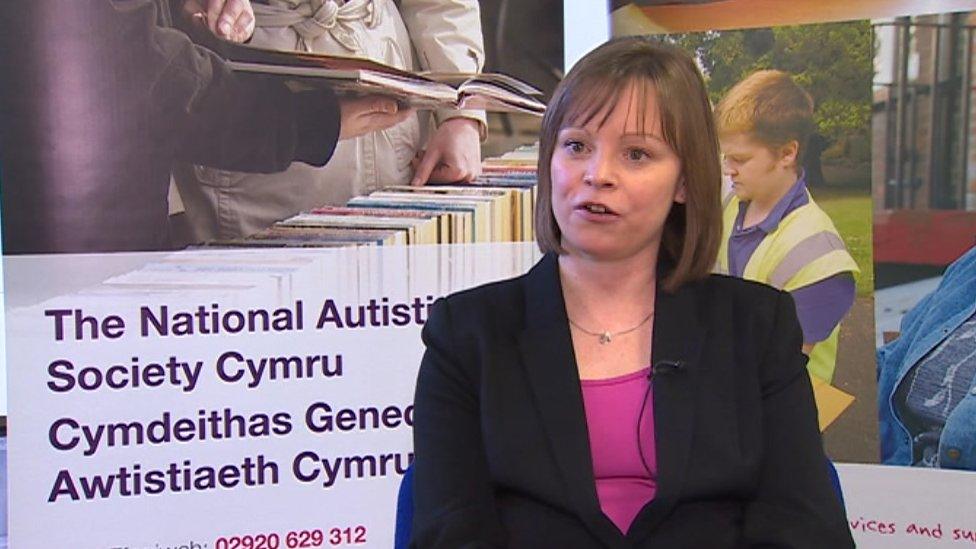Mum's marathon on broken leg for Machen autism den
- Published
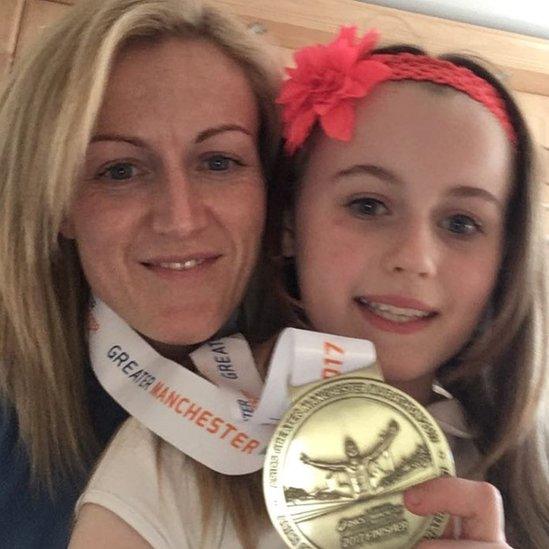
Claire completed the Manchester Marathon for her daughter Lilly
When a new sensory den opened at a Caerphilly county primary school on Tuesday, it was the culmination of a journey - at times a very painful one - for a mother driven by the love of her autistic daughter.

When Claire reached the 17th mile in her first marathon, she felt a searing pain in her leg.
She did not know it then, but she had broken her fibula and found it hard to stand, let alone run. But rather than pull out, she kept going for the final nine miles - until she crossed the finish line at 26.2 miles in four hours one minute.
Throughout every torturous step, one thought kept Claire going - her 11-year-old daughter Lilly.
Lilly has autism and Claire says every day for her is like a marathon.
Claire ran the final nine miles in pain
"School is exhausting. Just putting on the act almost all day of trying to be as normal as she can and trying to understand the social niceties and all the intricacies of how to behave as a girl - what you should say and what you shouldn't say and all of that - is just absolutely exhausting for her," said Claire, from Machen in Caerphilly county.
"She just likes to come straight home, straight under a blanket with her cats and her animals and her comfort and almost recuperate for the rest of the evening to do it all again.
"And often she will say 'I can't do it again tomorrow, I have done it today, I can't do it again'.
"So when I was running my marathon, that's what I kept thinking. Sometimes I think every day must be like running a marathon for Lilly.
"Life is incredibly hard for her."

Claire said she felt a sudden pain at mile 17 - and an x-ray later revealed she had a clean break
Claire pushed on to the end of the race knowing she was raising money to help children like Lilly.
A few months before the marathon last May, she came up with the idea of creating a sensory den at her children's school, Machen primary.
The den, which is in a specially-built pod in the school yard, is kitted out with bean bags, lights and sensory toys and is the culmination of fundraising and the generosity of local businesses and the community.
It opened officially on Tuesday and Claire hopes it will provide a calming space for both pupils with autism and those who might find the school day hard to cope with at times.
For children like Lilly - who has high-functioning autism - things as simple as noisy corridors and crowded halls can cause anxiety.
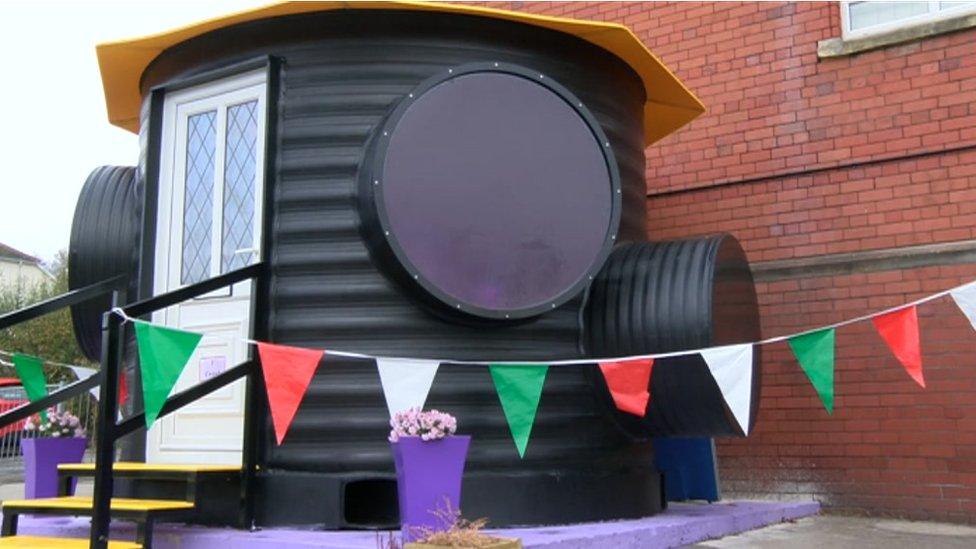
The sensory hub has been built in the playground of Machen Primary School

Welsh actor Richard Mylan, whose son Jaco has autism, opened the den
"She's a clever girl and is in mainstream school but she has barriers to learning," said Claire, 39, who has two other children aged eight and five with husband Richard.
"She has some demand avoidance, which means any demand put on Lilly makes her incredibly anxious, to the degree that she will do anything to avoid doing what that demand is, whether that means going in a book case or under a table.
"It just racks her with anxiety. And children like that can actually come across as very manipulative because obviously they try to manipulate the environment and the situation to mask the fact that they are so incredibly anxious."
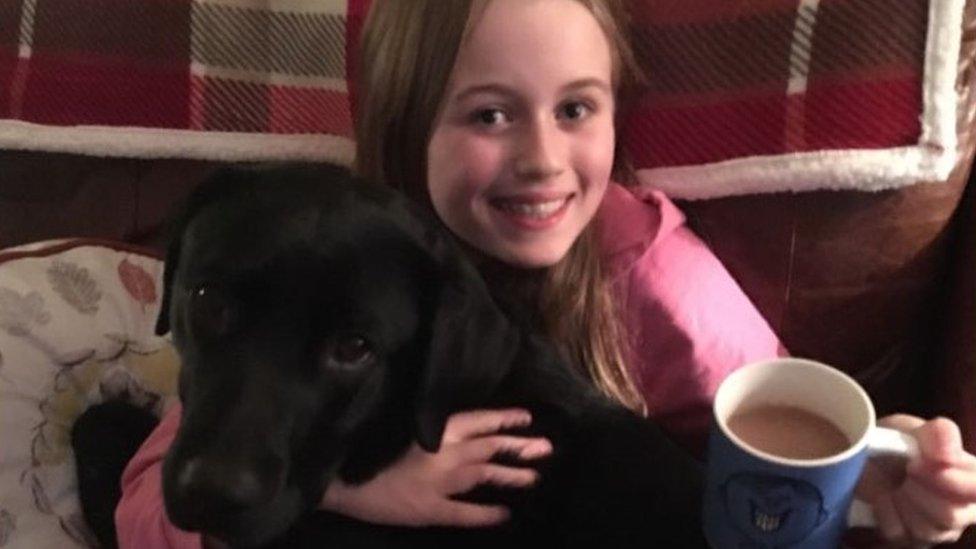
Lilly loves nothing more than being at home with her pets
Lilly can no longer benefit from the den as she started secondary school in September but Claire said she wanted to ensure other autistic children in the school would be catered for.
"Every child with autism is completely different but they all have their own struggles," she said.
For Lilly, life continues to be hard - she has found the step up to secondary school challenging and is currently only doing two hours there a day.
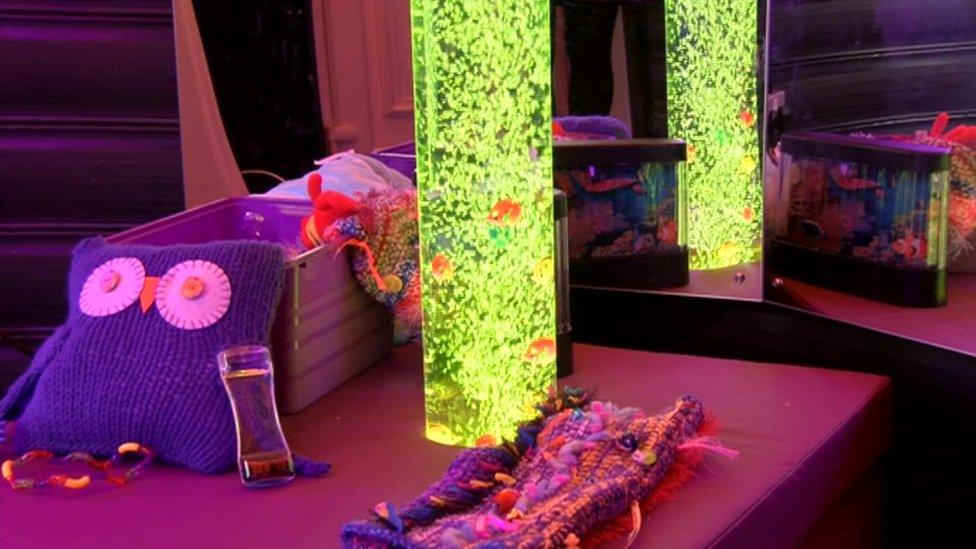
Inside the den are bean bags, cushions, sensory lights and blankets
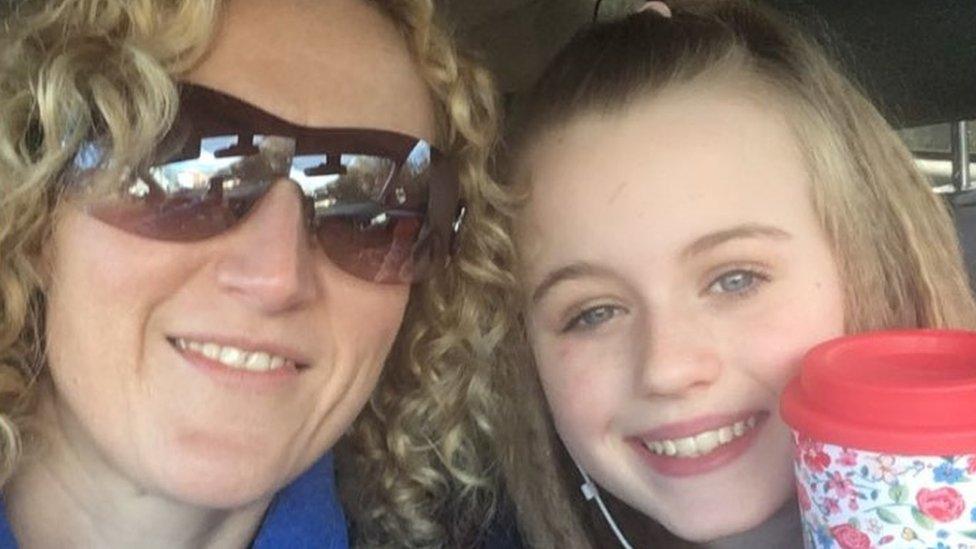
Claire says Lilly struggles to make friends because of her autism
"I think it's very much the social aspect," said Claire, who gave up her job as a research scientist to care for Lilly and now works part-time as a learning support assistant at Machen primary.
"She doesn't really have a social life or friends and it's quite hard for an 11-year-old girl to go through that.
"She just looks forward each day to coming home and being with her family and her animals."

What is Autism?
There are about 700,000 people on the autism spectrum in the UK
Autism is a hidden disability - you cannot always tell if someone is autistic
The term "autism" is used to describe different conditions including Asperger syndrome and Pathological Demand Avoidance (PDA)
Information from The National Autistic Society, external

Claire would love her daughter to make just one special friend and tries to help her by organising play dates with other children.
But she appreciates that not everyone fully understands autism.
"I think Lilly finds social interactions very difficult. She can over-compensate by coming across very 'ticky' so she will grab people and hug them or she will squeak or she will be over-excited," Claire added.
"She can then misinterpret things that are said so she can think that people are being mean to her when they're not.

Lilly is a 'lovely and unique girl', her mother says
"Basically it's all around understanding social interactions and when you're a girl there are so many subtle things - body language, what you wear, how your hair is.
"There are so many things that constitute being popular or not and for her it's very, very difficult.
"She will often think it's easier to stay in her room. She likes looking at things on her iPad. We have to make sure she experiences real life, not just the virtual life - the life that she would love to live that's on You Tube or something like that.
"But I'm so proud of her - she's a lovely girl and she's very unique."
- Published8 April 2017
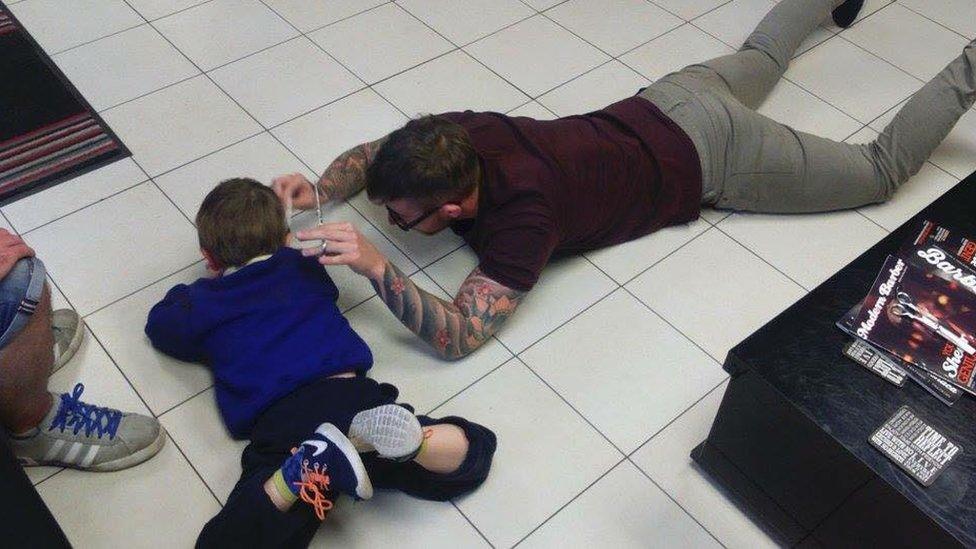
- Published4 April 2017
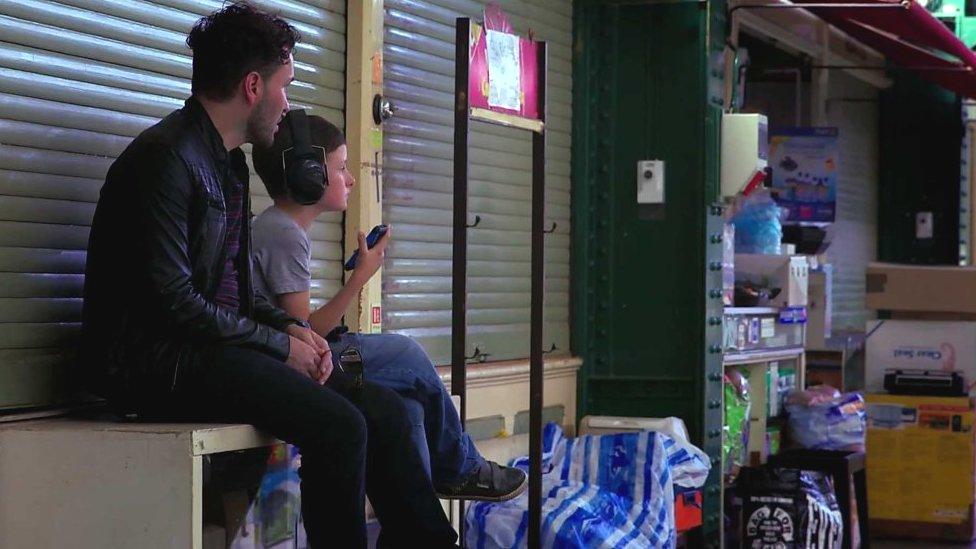
- Published29 October 2016
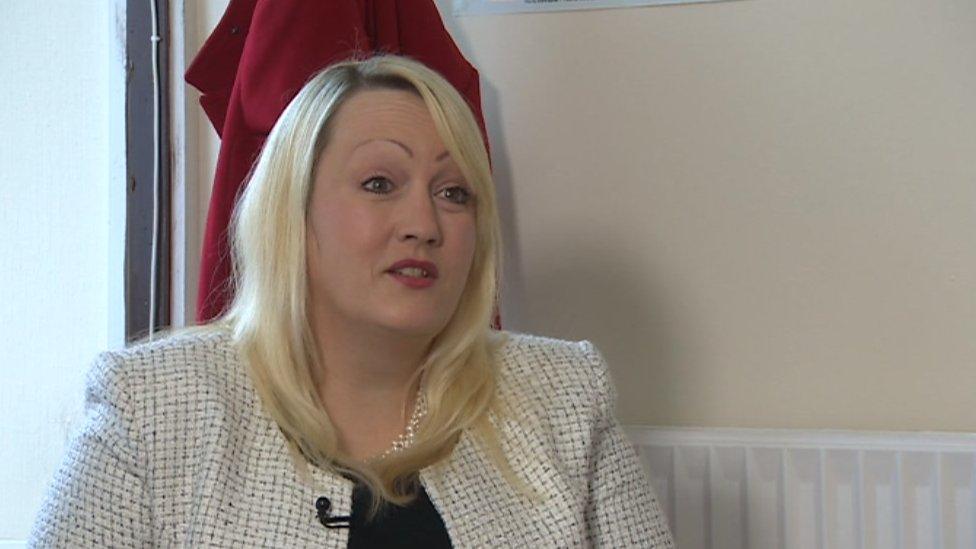
- Published4 March 2016
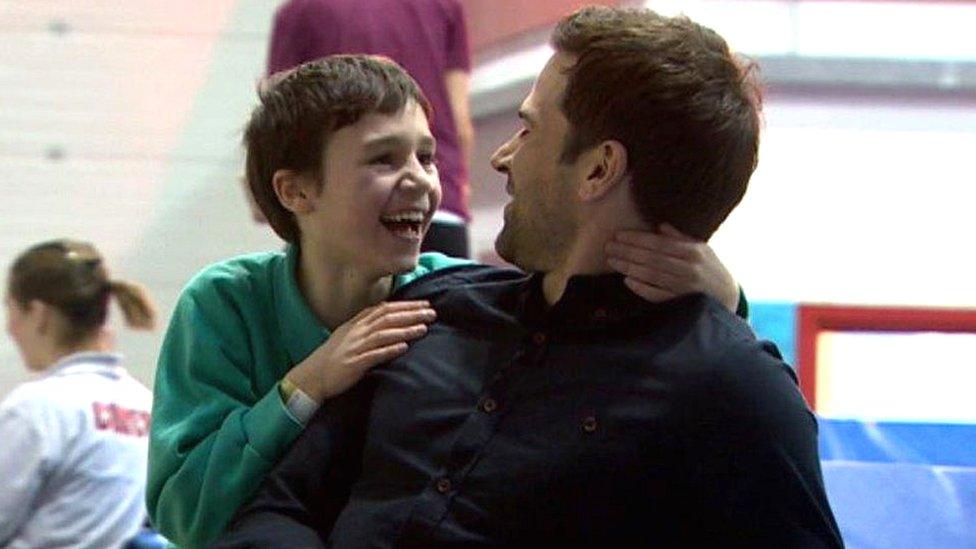
- Published1 March 2016
